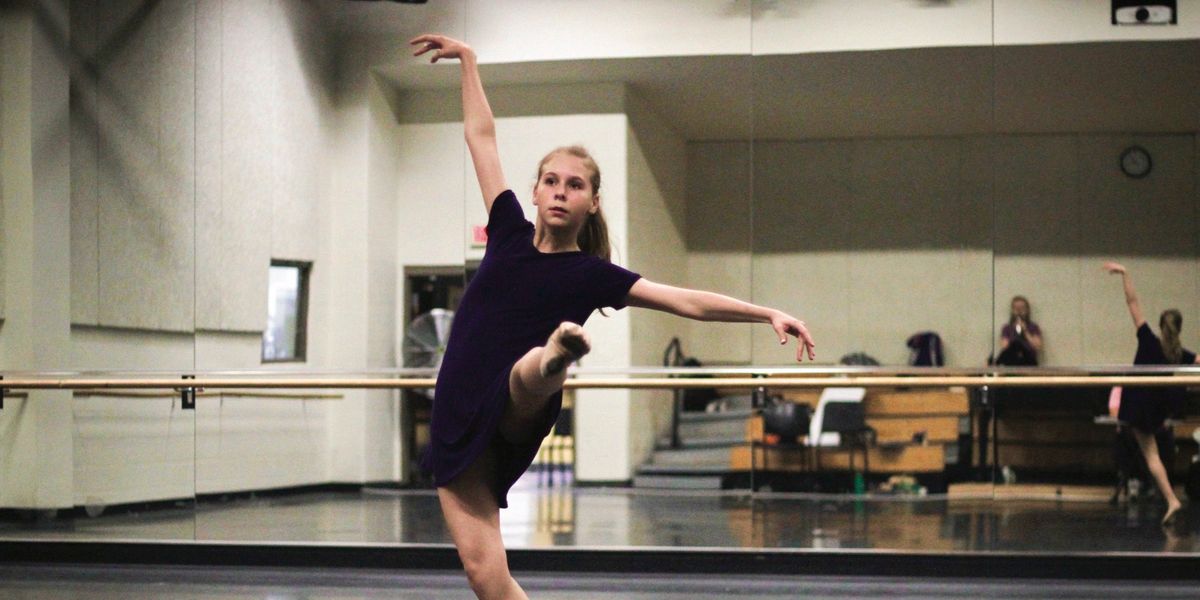The Truth About Grades as a Dance Major
You may know what it means to earn a silver, gold, or platinum award for your performance—but probably not an A, B, or C grade. Often, dancers don’t encounter the idea of grading in dance until they enter collegiate dance programs. When you’re evaluating an inherently subjective art form, what distinguishes an A student from a B student?
The answer: It’s complicated. “There’s a lot that goes into creating a well-rounded, successful student, which hopefully produces a well-rounded, successful professional,” says Angelina Sansone, a ballet instructor at University of North Carolina School of the Arts.
In college programs, set movement phrases, repertory selections, or audition-style classes often serve as graded midterms or final exams. Written components such as self-assessments, audition research projects, and dance history tests might count as well. But the largest contributing factor to your grade is usually how you approach the work, day in and day out.
Dance Spirit
talked to faculty across the country to discover what it takes to be a top student—and why dance grades matter.
What makes an A student?
A common misconception when it comes to grading in dance is that dancers with natural facility are automatically at an advantage. But banana feet, easy exten-sion, or a slender physique won’t earn you straight A’s.
“You don’t have to be the most naturally gifted dancer to get the highest grades,” says Michelle Loucadoux-Fraser, Hussian College, Los Angeles’ associate dean of undergraduate studies and dance instructor. Butler University dance professor Susan McGuire agrees. “We don’t grade facility,” she says. “It’s what you do with the facility you’re given that makes the difference.” An A student shows up prepared for class, and stays present and engaged throughout its entirety. An A student is professional and approaches any and all work with the same level of vigor. An A student thinks critically, behaves positively, and performs reliably, striving for growth each day as an artist and as a technician.
University of Arizona’s dance professor Tamara Dyke-Compton says grading has everything to do with effort, dedication, progress, and discipline. “Those are the things that, for me, changed when I earned my A’s at Juilliard,” Dyke-Compton admits. “It wasn’t how much better my feet were. It was about what was deep in my soul.”

University of Arizona’s Tamara Dyke-Compton (front) teaching class (Ed Flores, courtesy University of Arizona)
What’s the point?
Why bother grading dance, besides the fact that many colleges require letter grades? Grades are a benchmark, a way of assessing your progress. When grades are inflated, dancers get the wrong idea of where they are in their training. “It gives the student the false impression that they don’t have a lot more to do,” McGuire explains.
Don’t be surprised if your highest grades come in your later years at school. Dance faculty determine grading criteria based on what will best prepare dancers for a professional career. As you meet those expectations, your grades will rise, and you’ll be better prepared to enter the real world—a process designed to progress each semester. “In the first year, I tend to give very few A’s,” McGuire says. “For me a B is good; an A is excellent. You’re doing good work. It’s just going to take a while. We have to up the ante.”
Loucadoux-Fraser says there’s no point to being in college if you’re getting all A’s all the time, anyway. “Along with that not-perfect grade comes an impetus to improve,” Loucadoux-Fraser says. “I don’t think the right thing for students to do is to fixate on grades. I think the right thing to do is to focus on improving, and then the grades will come.”

University of North Carolina School of the Arts students in class (Pete S. Mueller, courtesy UNCSA)
Do grades matter?
Your undergraduate grades will definitely matter if you’re hoping to earn a graduate degree in dance. Your transcript will be requested and your GPA assessed during the application process, though not the audition process, for nearly every graduate program.
In the professional dance world, grades are less important. When it comes down to it, dance companies won’t look at your grades when hiring. They’ll look at the dancer in front of them, the way you work, and how you carry yourself. That said, the grades you earn in college are a good indicator—though not the only indicator—of how you’ll handle the demands of the professional world.
Dyke-Compton compares an under-graduate degree to the foundation of a house: “It builds your life skills as a dancer to allow longevity in your career. It will stand strong for the rest of time.” Your grades reflect the strength of this foundation. “Having a high GPA in your undergrad,” Dyke-Compton says, “proves that you have accomplished a difficult task that not everyone can do.”




